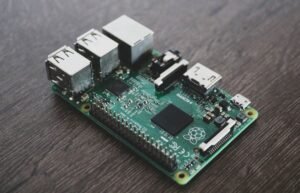When Did Artificial Intelligence Start
Artificial Intelligence (AI) has become an integral part of our lives, revolutionizing various aspects of society and rapidly transforming industries. Its roots can be traced back to the mid-20th century when the first concepts and developments of AI emerged. Let’s explore the fascinating journey of AI from its inception to the present day.
Key Takeaways:
- AI originated in the mid-20th century.
- Early AI focused on rule-based systems and symbolic reasoning.
- The AI field experienced significant advancements and setbacks.
- Machine learning and neural networks accelerated AI progress.
- AI is now integrated into various domains, such as healthcare and finance.
The Beginnings of Artificial Intelligence
In the 1950s, pioneers like **Alan Turing** and *John McCarthy* laid the foundations of AI. Turing proposed the famous “Turing Test,” while McCarthy organized the Dartmouth Conference, which marked the birth of AI as a recognized field.
Moving Beyond Symbolic Reasoning
Initially, AI research focused on rule-based systems and symbolic reasoning, with researchers attempting to mimic human intelligence using logical deductions and expert systems. However, **Herbert Simon** and *Allen Newell* introduced a new paradigm called “heuristic search” in the late 1950s, which shifted focus towards problem-solving techniques.
The Arrival of Machine Learning
In the 1980s and 1990s, continued developments in AI led to the rise of machine learning. Researchers started using statistical methods to enable computers to learn and improve through experience. This era witnessed the birth of important concepts like **neural networks** and *deep learning*, which later became fundamental to AI progress.
AI’s Evolving Landscape
From the 2000s onward, AI has experienced exponential growth and expansion into various domains and industries. This period witnessed the emergence of powerful AI frameworks and algorithms, as well as the increasing availability of large datasets for machine learning. **IBM**’s *Watson*, for example, showcased the potential of AI in fields like healthcare, finance, and natural language processing.
| Year | Milestone |
|---|---|
| 1950 | Alan Turing proposes the “Turing Test” to evaluate machine intelligence. |
| 1956 | John McCarthy organizes the Dartmouth Conference, marking the birth of AI as a formal field of study. |
| 1957 | Herbert Simon and Allen Newell introduce heuristic search, shifting focus towards problem-solving techniques. |
| 1986 | Geoffrey Hinton popularizes the “backpropagation” algorithm, propelling neural networks forward. |
AI Today: Applications and Impacts
The contemporary AI landscape is rich with diverse applications and significant impacts across industries. AI is employed in healthcare to assist with diagnosis and treatment, in finance for fraud detection and algorithmic trading, and in autonomous vehicles for enhanced driving experiences. The possibilities are extensive and continue to expand.
| Domain | AI Applications |
|---|---|
| Healthcare | Diagnosis, drug discovery, telemedicine, personalized treatment |
| Finance | Fraud detection, risk analysis, algorithmic trading, customer support |
| Transportation | Autonomous vehicles, route optimization, traffic management |
The Future of AI
As AI continues to evolve, we can expect even greater advancements in the coming years. Ongoing research aims to develop more generalized and robust AI systems with improved reasoning capabilities. With the integration of AI into our daily lives, society is on the cusp of transformative changes that will redefine how we live, work, and interact.
The Ethical Considerations
AI’s rapid development also raises ethical concerns. Ensuring responsible AI usage, addressing biases in algorithms, and maintaining data privacy are critical challenges that must be tackled as AI increasingly impacts society.
Continuing Progress
The journey of AI is ever-evolving, and its impact on society will only grow deeper. Through ongoing research, innovation, and collaboration, the potential of AI to shape the future remains immense.

When Did Artificial Intelligence Start
Common Misconceptions
There are several common misconceptions surrounding the topic of when artificial intelligence (AI) actually began.
- AI started in the 21st century
- AI is only used by big corporations
- AI technology is mainly focused on robots and humanoid machines
Contrary to popular belief, AI did not start in the 21st century. While recent advancements have brought AI into the mainstream, the development of AI can be traced back to much earlier periods.
- AI research dates back to the 1950s
- Early AI programs focused on symbolic reasoning
- The first AI milestone was achieved in 1956
Another common misconception is that AI technology is only utilized by big corporations. While major companies certainly utilize AI for various applications, the accessibility and availability of AI technology have expanded to reach smaller enterprises and individuals as well.
- AI is now accessible to small businesses and individuals
- AI-powered software and services are widely available
- AI has democratized innovation and productivity
Lastly, many mistakenly believe that AI is mainly focused on robots and humanoid machines. While AI does play a significant role in robotics, it is not limited to this area alone. AI can be found in numerous applications and sectors, impacting various industries and domains.
- AI is used in healthcare, finance, transportation, and more
- AI assists in data analysis and decision-making processes
- AI powers virtual personal assistants, recommendation systems, and chatbots

Artificial Intelligence Timeline
Before delving into the history of artificial intelligence, it is important to understand the different milestones and advancements that have shaped this field. The following table outlines some key events in the development of artificial intelligence:
| Year | Event |
|---|---|
| 1950 | The birth of modern AI: Alan Turing proposes the imitation game, known as the Turing test, to determine a machine’s ability to exhibit intelligent behavior. |
| 1956 | The Dartmouth Conference: John McCarthy, Marvin Minsky, Nathaniel Rochester, and others coined the term “artificial intelligence” and sparked the field’s formal exploration. |
| 1958 | John McCarthy develops the programming language LISP, widely used in AI research and development. |
Early AI Systems
As researchers delved further into the realm of artificial intelligence, significant advancements in AI systems were made. The following table highlights some early AI systems:
| System Name | Year | Functionality |
|---|---|---|
| Logic Theorist | 1956 | Developed by Allen Newell and Herbert A. Simon, the Logic Theorist was the first program to prove mathematical theorems. |
| Shakey the Robot | 1966 | Developed at Stanford Research Institute, Shakey was the first mobile robot capable of reasoning about its actions and making decisions. |
The AI Winter
Following initial excitement and progress in artificial intelligence, the field experienced a period known as the “AI winter,” where funding and interest decreased significantly. The table below outlines key events during this time:
| Year | Event |
|---|---|
| 1974 | The Lighthill Report: A report by James Lighthill heavily criticizes the accomplishments and future potential of AI, leading to reduced funding. |
| 1987 | Expert Systems Hype: Over-hyped promises of expert systems lead to disillusionment and further decline in AI research. |
Revival and Breakthroughs
Fortunately, the field of AI experienced a resurgence in the 1990s, marked by significant breakthroughs. The following table highlights notable accomplishments during this period:
| Year | Event |
|---|---|
| 1997 | Deep Blue defeats chess grandmaster Garry Kasparov, marking a major milestone in the capabilities of AI. |
| 2011 | IBM Watson wins Jeopardy!: The Watson AI system defeats human champions at the game show Jeopardy!, showcasing advancements in natural language processing. |
Modern AI Applications
In recent years, artificial intelligence has found widespread use in various domains. The table below showcases some notable modern AI applications:
| Domain | Application |
|---|---|
| Healthcare | AI-powered diagnostic systems capable of analyzing medical images and aiding in disease detection. |
| Transportation | Autonomous vehicles incorporating AI technologies to navigate and make decisions on the road. |
Ethical Considerations
As AI becomes more integrated into our daily lives, ethical concerns have become a significant topic of discussion. The table below highlights some key ethical considerations related to AI:
| Issue | Description |
|---|---|
| Bias in AI | Concerns regarding biased algorithms leading to discriminatory outcomes, particularly in areas such as hiring or criminal justice. |
| Privacy | Widespread use of AI systems raises concerns about the collection and usage of personal data. |
The Future of AI
The field of artificial intelligence continues to evolve rapidly, with exciting prospects on the horizon. The following table outlines some anticipated future developments:
| Area | Potential Advancement |
|---|---|
| Machine Learning | Advancements in deep learning techniques and neural networks could lead to even more advanced AI systems. |
| Robotics | Integration of AI technologies in robotics could enhance their capabilities for complex tasks in various industries. |
Conclusion
The journey of artificial intelligence has spanned several decades, witnessing periods of excitement, disappointment, and resurgence. From early AI systems to the present-day applications and ethical considerations, the field has made remarkable strides in its quest to mimic and surpass human intelligence. As AI continues to transform various industries and aspects of our lives, it will undoubtedly shape our future in ways we cannot yet fully comprehend.
Frequently Asked Questions
When Did Artificial Intelligence Start?
What is the history of artificial intelligence?
Who is considered the father of artificial intelligence?
What were some early achievements in artificial intelligence?
What led to the AI winter in the 1970s and 1980s?
What are some recent advancements in artificial intelligence?
What is the current state of artificial intelligence?
Will artificial intelligence replace human jobs?
How is artificial intelligence being used in everyday life?
What are some potential risks and challenges associated with artificial intelligence?
What does the future hold for artificial intelligence?




